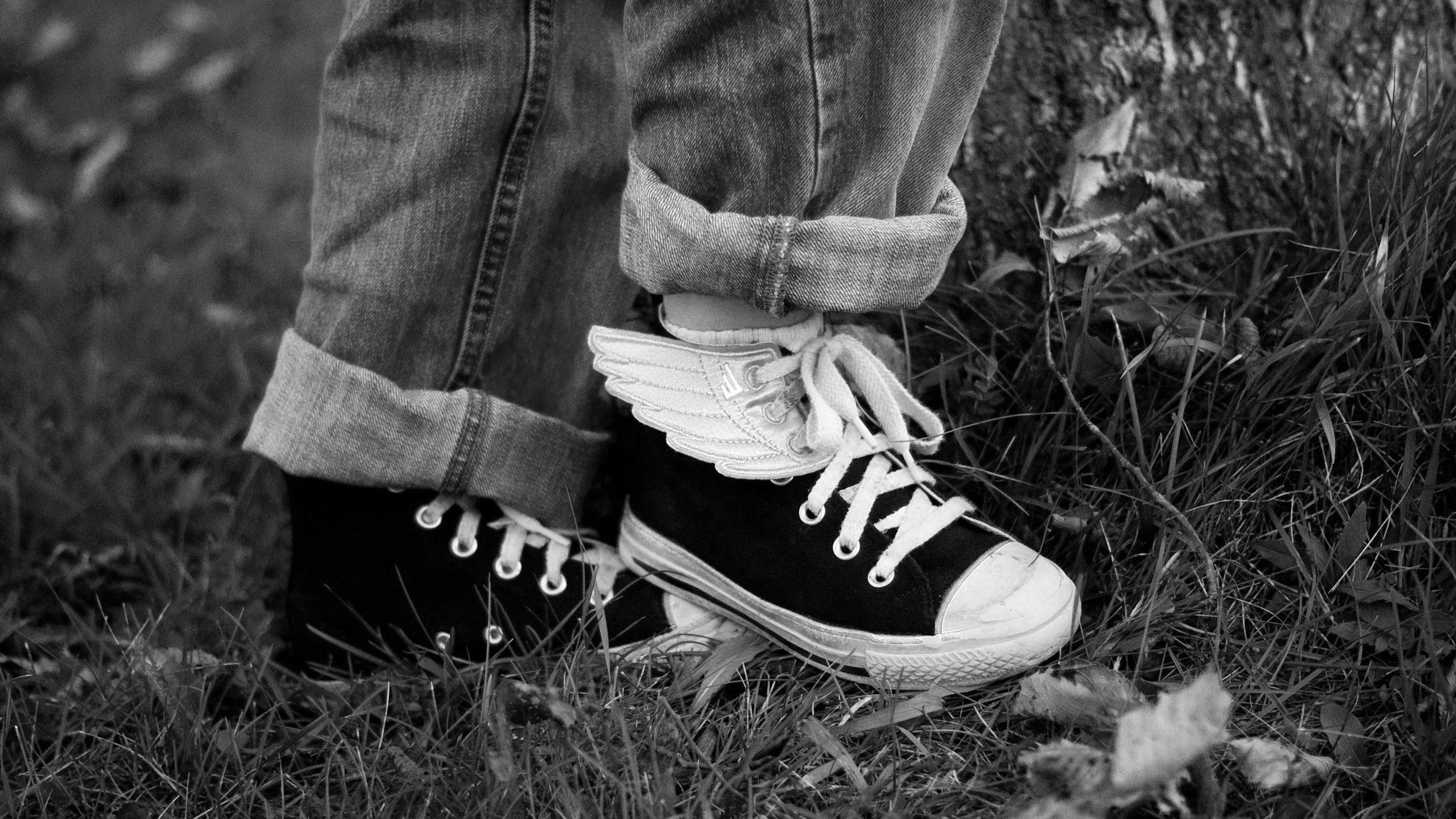Hang In There, Kiddo: Embracing Neoteny
For some reason, my hands and feet stopped growing early. They were never all that big to begin with, and just never made it up to regulation size. I can still fit into kids’ shoes and gloves, which has its charms. Anyone who sees me paddling around barefoot or sees my wee shoes lined up by the door usually comments (in a nice way). It’s really not a bad thing. It makes me feel cute and charming.
My voice never quite reached full adult timbre either. I have a distinctive, signature squeak, and though I rarely sing in public, I’m confident I can still hit all the high notes that I could as an adolescent. My falsetto ain’t false. Again, not a bad thing. This also makes me feel cute and charming.
These quirks are particular to me, but there’s a name for the tendency of some species to hold onto youthful traits well into their adulthood. It’s called neoteny. For lots of complex reasons that I’m not qualified to explain, humans tend to keep some of our juvenile traits longer than other creatures. Both our brains and our behaviour stay flexible and adaptable, in theory anyway. We have neoteny in common with penguins, naked mole rats, and bowhead whales. Thus far, it’s worked for us, and maybe it also explains why we prize all things adorable.
As fascinating as it is to look at neoteny from a scientific perspective, I prefer the poetic, symbolic, even aspirational aspects of it. I’ve always seen my hands, feet, and voice as reminders that I don’t have to grow all the way up, that there are aspects of who I was as a wee person that will continue to serve me for the rest of my life. What bliss to be able to grow serious and responsible without being too serious and responsible. How wonderful to know that I have the infrastructure necessary to preserve my imagination and my silly sense of humour. It’s been good for me to hold off a little on the whole maturation business, maybe even a gift, and I’m grateful for it.
I carry this into the work that I do with/for kids. With all the thousands of years of philosophy and philosophers there are to pour through, I’ve never met anyone more adept at good, straight-up, rational thought than a kid. No adult I’ve ever met has been as willing to play with new ideas or to speak openly. No adult I’ve ever met has demonstrated the pure, undiluted curiosity of a kid thinker, the fearlessness or the openness of a kid thinker. These are the good parts of our younger years, even better than being rosy-cheeked, fleet of foot, and equipped with an inconveniently sticky memory.
My hands, feet, and voice simply happened the way they happened, but I think we have a choice with some things, including whether we allow ourselves to grow out of curiosity. I am holding onto mine, with my kid-sized hands, standing firmly in it with my kid-sized feet, squeaking about it with my kid-pitched voice. According to scientists, we humans have the neuroplasticity to keep this party going long after we mature physically and chronologically, and I’m up for that. Even when I reach the point where I stop covering my greys or using filters on my wrinkles, when I give in to the trappings of my chronological age, I will still be the obnoxious kid asking too many questions, up all night with my head buzzing, unable to shut up.
When I talk to people about doing philosophy with kids, I always insist that we grow into ignorance, not out of it. If we’re melancholy about our kids reaching young adulthood, it’s because we see that they’ve let some of their sweet, neotenous curiosity and wonder float away. It’s because they’ve started to act like us “big people,” holding a disappointing mirror up to those of us of a certain age. It’s tragic because it doesn’t have to happen, and because we spend a lot of our adult years kicking ourselves for it, pining over the loss of something that isn’t really lost.
Embrace neoteny, my friends. Even if we’ve chosen to let ourselves “grow up” as thinkers, there’s still a way back, and the path is lovely.
